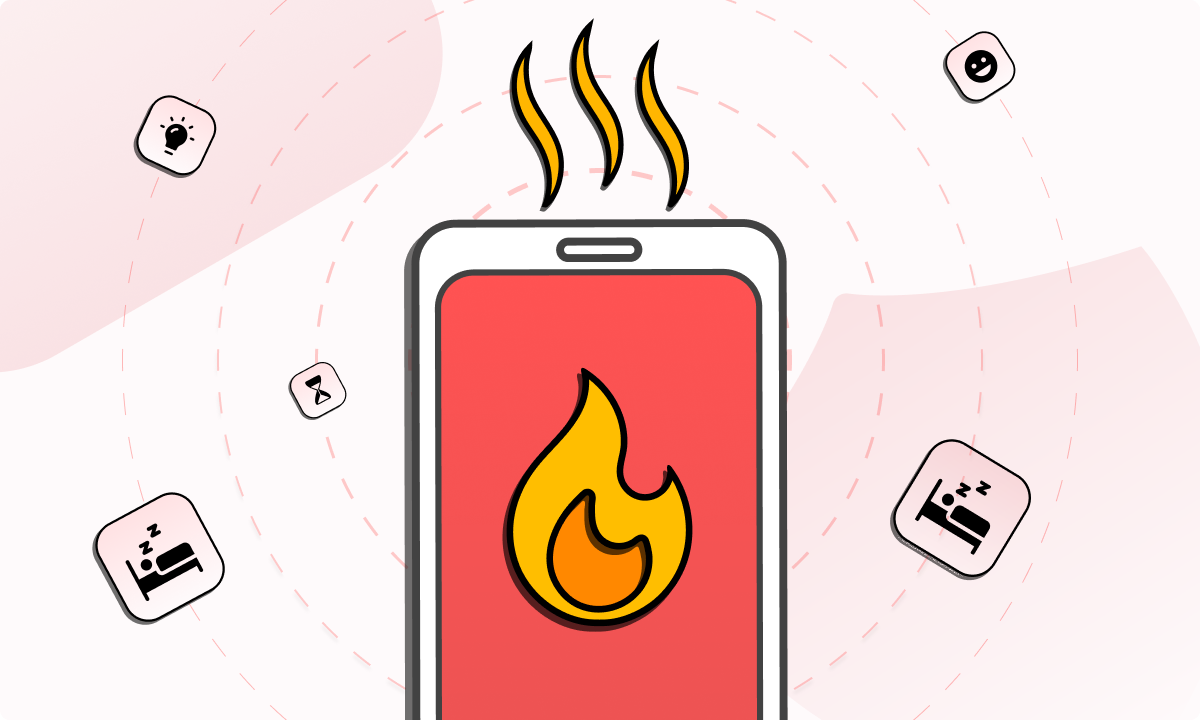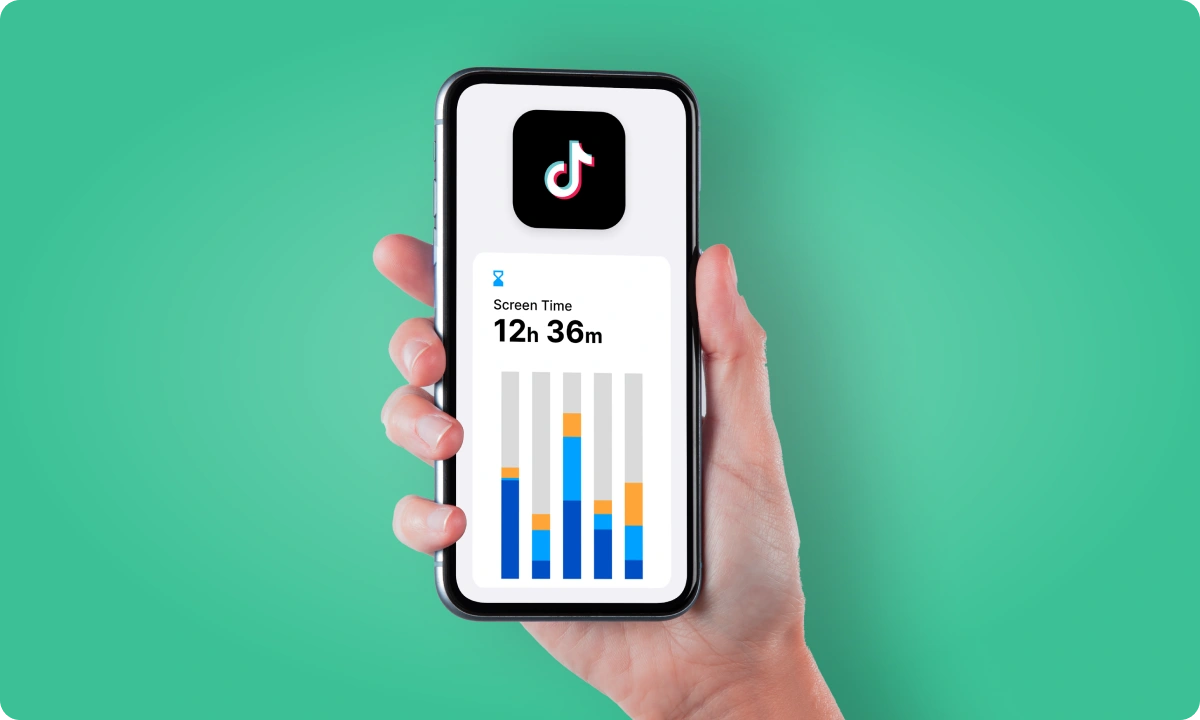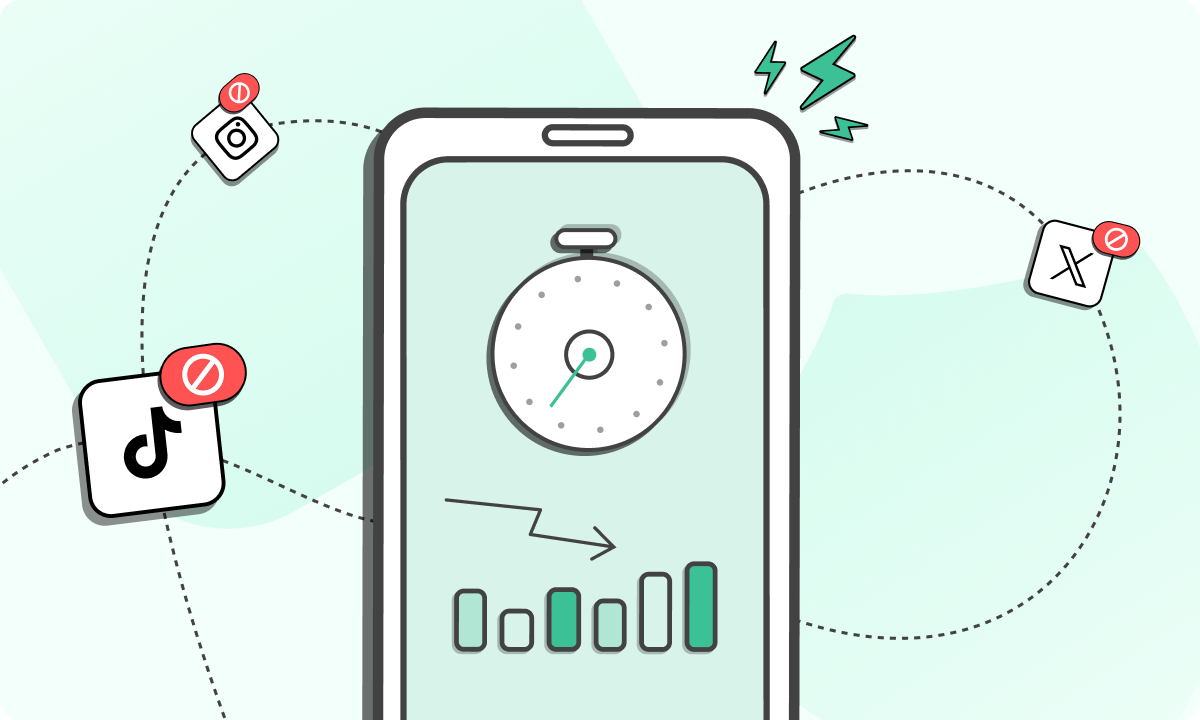Social media is quite the encompassing phenomenon, with more than 60% of the world’s population on it, according to Smart Insights. The average user spends over 2 hours a day scrolling and refreshing, what defines addiction though? Let’s talk about this serious condition and know solutions to help you regain control.
What Is Social Media Addiction?
You’ve probably heard the term “social media addiction” before, but what exactly does it mean? It’s when you can’t stop scrolling through Facebook, Instagram, Twitter or any other similar platform and it starts to affect other parts of your life. You could be compulsively using social media, changing your mood for the worse, or experiencing withdrawal symptoms when you’re not on a platform. It’s similar to any other addictive behavior.
Why Is Social Media Addictive?
Social media is no random addiction. Its addictive nature is backed by a direct relation to the brain’s reward system. Platforms have been handcrafted and built with the sole purpose of releasing dopamine, otherwise known as the “feel-good” neurotransmitter. Every like, comment or share is meant to activate that release so you can feel satisfied and happy. With every rewarding experience that occurs, you’ll be more encouraged to repeatedly use the platform.
But, that’s not where it stops.
Not only does social media take advantage of our desire for recognition but also our deep human craving for social connection. Considering we may not be receiving those “likes” in real life, these platforms simulate interactions instead. The unpredictability of such rewards keeps users wanting more — which is similar to how a lottery system works — knowing they won’t know when the next interaction will trigger their next release of dopamine. It’s this cycle of anticipation and reward that makes social media captivating and hard to resist.
What Are the Negative Effects of Social Media Addiction
Addiction to social media can have significant negative impacts on an individual’s life in ways that often go unnoticed. It is important to understand these effects in order to recognize the need for change.
Mental Health Consequences
One of the biggest issues with addiction to social media is how it affects individuals mentally. Users tend to experience heightened levels of anxiety and depression. Constantly comparing oneself with other people’s fabricated lives can lead to feelings of inadequacy and low self-esteem.
Furthermore, the need for validation through likes and comments creates a dependency that has an impact on mood and self-worth. This cycle of searching for validation and then comparing ourselves with others poorly, can result in a persistent state of dissatisfaction and unhappiness.
Sleep Disruptions
Using social media excessively, especially before bed, greatly disturbs sleep patterns, according to Sleep Foundation. The blue light emitted by screens interferes with melatonin production (the hormone responsible for regulating sleep). This disruption may lead to the following:
- Makes it hard to fall asleep
- Lowers sleep quality
- Causes insomnia
After a while, poor-quality sleep can cause numerous health problems such as weakened immune function, weight gain, and increased risk of chronic diseases.
Strained Relationships
Addiction to social media also puts strain on personal relationships. Spending too much time online takes away from real-world interactions which leads to feelings of isolation and loneliness even when surrounded by loved ones physically.
On top of that, addiction can cause arguments as partners or family members feel neglected or less prioritized than the online world.
Reduced Productivity and Focus
Another hidden cost is how it impacts productivity and focus levels. Social media is a huge distraction that interrupts work/studies which reduces overall efficiency. Consistent notifications paired with the urge to check updates fragments attention which makes it hard for individuals to concentrate on tasks for long periods of time. Fragmented attention doesn’t only reduce productivity but also lowers the quality of work or learning.
How to Stop Addiction to Social Media? 7 Tips
Breaking an addiction to social media requires careful planning, a meticulous strategy and the right tools. Here we dig into seven concrete steps for you to get control over your usage.
Use Tools Like BlockSite
There are plenty of tools available that can help manage your addiction – one being BlockSite which allows users to block distracting websites and apps altogether so that you can focus on more important tasks instead (like living life).
When used as a browser extension, you’ll be able to block social media sites via BlockSite’s dashboard. In addition, this tool can also be installed as a mobile app on Android and iOS devices. Via this method, you’ll be able to restrict access on specific social media sites and apps as well. All you need to do is access the Block List section and start adding the platforms and URLs that you’d like to block.
Aside from that, the Focus Mode allows you to schedule times for these sites specifically so that you’re inclined to stick with your new boundaries.
Additionally, BlockSite’s many features can also keep track of your progress so you can be mindful in reducing your overall usage.
Awareness and Mindfulness
In order to combat an addiction, it must first be acknowledged. Try and keep track of your social media use as much as possible. Pay attention to when you tend to use it the most and what emotions drive you to go on. What are you looking for?
- Comfort?
- Distraction?
- Connection?
Being aware of these things will help keep you present so that you’re able to make conscious decisions rather than mindlessly scrolling through your feed. This is an effective strategy on how to stop wasting time online. Next time the urge strikes, pause for just a beat and ask yourself if this is something you’re doing out of habit or by choice.
Set Boundaries
Setting clear boundaries is key. Choose specific times during the day when you’re allowed to check social media, such as once in the morning and once at night. Make sure not to use any of these services while at work or spending time with family either.
Trust us, setting these boundaries will make it easier in the long-run – they’ll help create structure which leads to less compulsive behavior overall. You should also try setting time limits for each session too (setting a timer may even help).
Engage in Offline Activities
Instead of using social media when idle, find something else other than screen-time to do with your time (reading books is my personal go-to). Engaging in these activities not only distracts you from the compulsion to open up the app but also enriches your life and improves your overall well-being.
Digital Detox
Regularly schedule times when you completely disconnect from the digital world. This could be a few hours each day or even taking off all weekend if you’d like. Doing digital detox will help recalibrate your brain so that it isn’t constantly needing stimulation – creating a sense of peace and contentment.
Seek Support
Don’t hesitate to reach out for support when needed. Talk to friends and family about your goal to reduce social media usage as they can offer encouragement and keep an eye on you (in a good way, of course). If this doesn’t solve things, don’t be afraid of professional help either – they’ll probably be able to provide strategies that are much better suited to managing addictive behaviors.
Reflect and Journal
Keep a journal of your experiences as you work to reduce social media usage. Write down anything that comes to mind such as
- Feelings
- Challenges
- Successes
Doing so will allow you to understand more about your relationship with these platforms, recognize trends in behavior and celebrate progress along the way.
Taking Your Time and Focus Back
Defeating social media addiction is a road to an existence that’s balanced and satisfying. It’s about making the choice to control or be controlled. Make sure you set the boundaries, use things like BlockSite and engage in activities out of the house. If you apply what we discussed here, you should be able to see a noticeable difference in your mental state and physical well-being.
This isn’t just about getting your time back but also strengthening real life relationships and discovering other aspects of life that have been put aside for too long. Remember, don’t banish social media from your life entirely, just create a healthy way to interact with it. With commitment you will get there! The goal is to conquer social media’s hold on your brain!
FAQs
Can addiction to social media affect physical health?
Yes. While it is widely accepted that addiction to social media can affect mental health, its effects on physical health are often underestimated. Prolonged use can lead to sedentary behavior, disrupt sleep patterns and even contribute to various physical problems such as eye strain, headaches and neck or back pain. Additionally, the stress and anxiety caused by excessive use of social media can be physically manifested in overall well-being.
How do I know if my way of using social media is just a habit or an addiction?
Differentiating between habits and addictions can be difficult. A key indicator of addiction is when the use of social networks begins to interfere with daily responsibilities. If you find it impossible to reduce your usage despite negative consequences, or feel anxious or restless without access to these platforms, these could be signs of addiction rather than simple habit.
What are some signs that I spend too much time on social media?
The most common warning signs regarding excessive use of social networks include spending more time online than intended; neglecting work or personal tasks; feeling anxious or anguished when unable to access them; giving preference to virtual interactions over real life connections and having your habits affect your sleep or make you feel jealous or inadequate.
How can I help a friend or family member with social media addiction?
Helping those affected by this kind of addiction requires empathy and support. Encourage open conversations about their usage avoiding acting judgmental . Suggest practical strategies such as setting specific times for the use of these platforms for them, finding alternative activities so they don’t have free time available for it anymore, recommending professional help if you think all their situation is very serious. You can also influence positively by setting boundaries about the way you use them yourself.
Are there any long-term benefits to reducing social media usage?
Reducing our use of these platforms brings us several long-term benefits. It leads to better mental health, reducing anxiety and depression. It also gives us more free time to invest in more productive or satisfying activities like improving personal relationships, interacting with people in real life and even working on our hobbies. In addition, over time we will experience improvements in focus, quality of sleep and a more balanced lifestyle.





